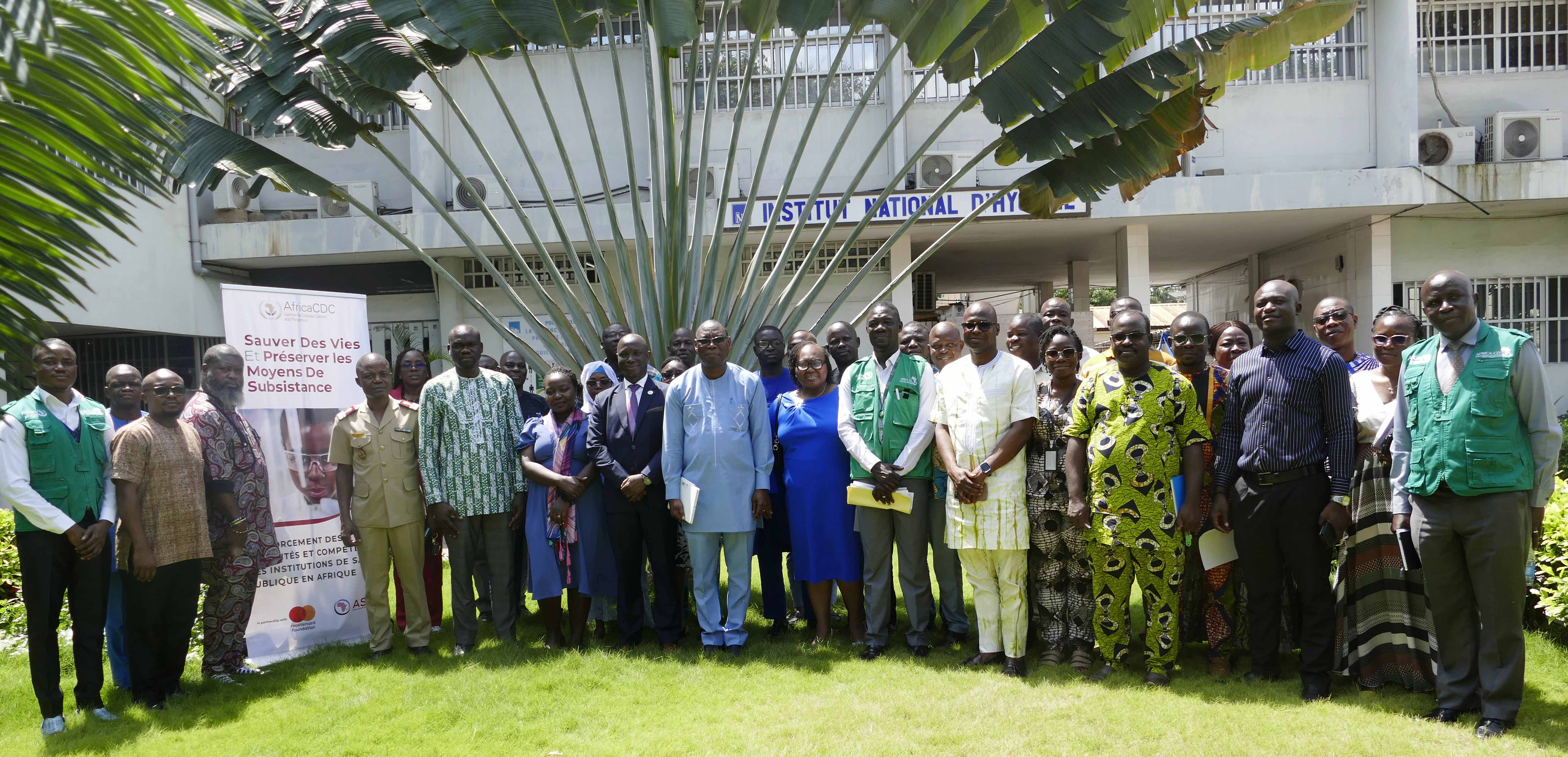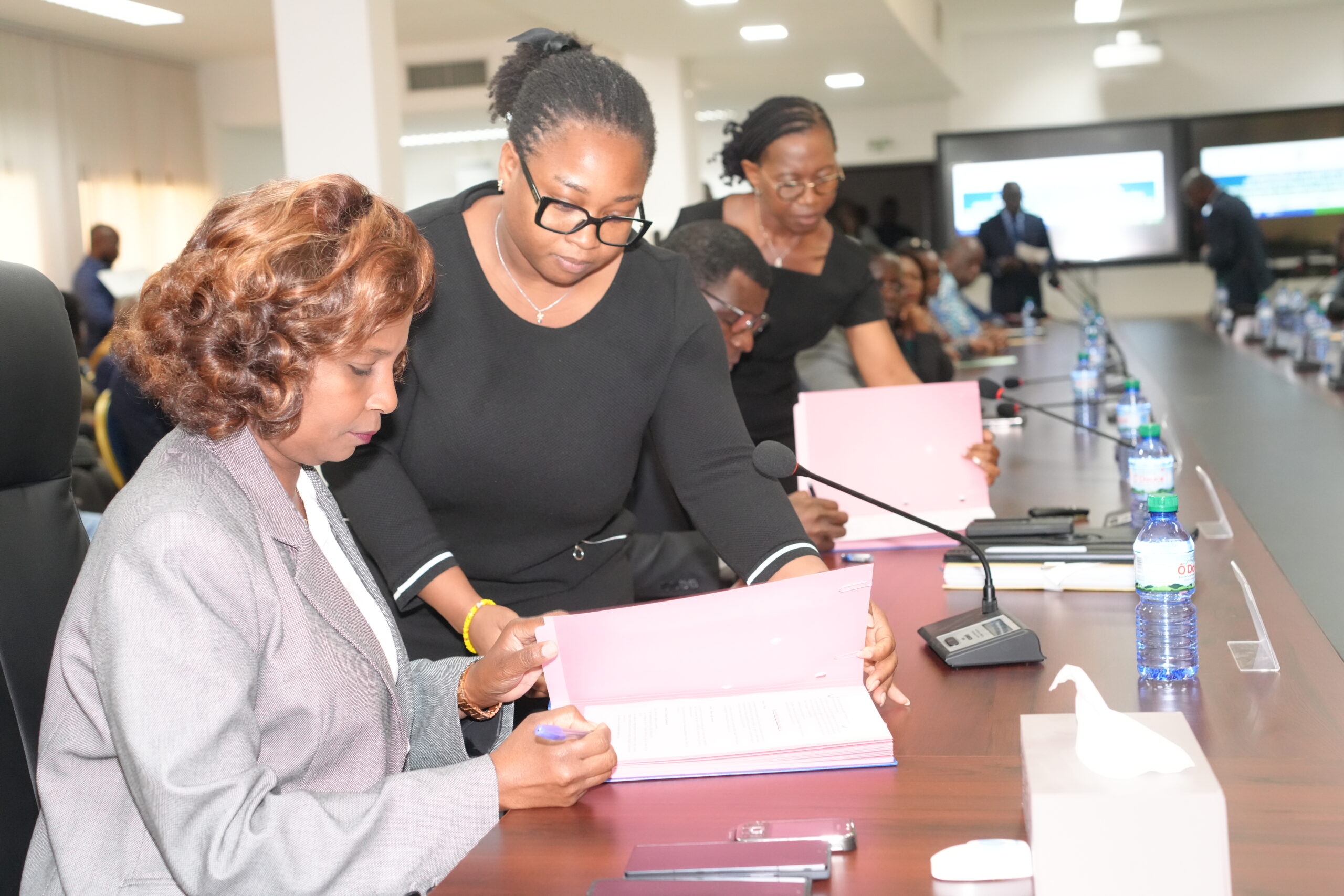The National Assembly committed to the fight against falsified medicines
- Posted on 25/06/2025 23:32
- Film
- By abelozih@sante-education.tg

Extract from the article: The National Assembly, in collaboration with the Fondation Brazzaville, leader of the Lomé Initiative on falsified medical products, and the Togolese State, political leader, represented by the Ministry of Health, organized an information and communi
The
National Assembly, in collaboration with the Fondation Brazzaville, leader of
the Lomé Initiative on falsified medical products, and the Togolese State,
political leader, represented by the Ministry of Health, organized an
information and communication seminar for representatives of the people on the
fight against the proliferation of substandard and falsified medical products
(PMQIF) on June 24 and 25.
The
seminar, which brought together MPs, public health experts, representatives
from the pharmaceutical sector and technical and financial partners, aims to
strengthen the involvement of parliamentarians in the fight against this
phenomenon, which threatens the health and safety of the Togolese population.
The aim of the session was to raise parliamentarians' awareness of the health risks posed by this major public health problem, to examine national efforts to counter this threat, and to explore the opportunities offered by the Lomé Initiative. Discussions also covered the current state of the proliferation of counterfeit medicines in Togo, Africa and worldwide, strategies to combat PMQIF, Togo's progress in implementing solutions, and prospects for the national pharmaceutical regulatory system.
Opening
the meeting, the President of the National Assembly, Sevon Tépé Adédzé, urged
MPs to understand that the fight against these substandard and falsified
medical products is a national priority because of their considerable impact on
the population: "Together, we have the power to secure the pharmaceutical
supply chains, educate the population, and establish an implacable legal
framework against counterfeiters. This seminar is a call to awaken consciences,
a cry for us legislators to become bulwarks against this injustice... let's
think about building a future where no child loses his or her life because of a
falsified medicine. Every citizen, regardless of income level, has the right to
access safe and effective medicines".
For
his part, the Minister of Health and Public Hygiene, Pr Tchin Darré, praised
the commitment of the MPs and recalled that these exchanges must lead to
concrete measures to guarantee access to safe, quality and affordable
medicines, essential to the success of universal health coverage. "This
seminar offers the health sector an opportunity to report on the activities
carried out under this initiative, to respond to the concerns of the people's
representatives, and to promote a better understanding of the issues at stake
in order to better serve our populations. It's also an opportunity to advocate
the adoption of pending bills aimed at strengthening our legal arsenal in the
fight against this illicit traffic", he points out.
A
major public health challenge
Experts
at the seminar drew up an alarming overview of the situation. They indicated
that in Africa, almost one in five medicines is either counterfeit or of
inferior quality and therefore non-compliant, posing a major risk to the
continent's fragile public health system.
“Trafficking
in substandard and falsified medicines represents a serious threat to our
States, compromising access to quality healthcare and depriving populations of
essential, safe and affordable medicines”, said Pr Tchin Darré. He noted that
in the absence of an appropriate legal framework for the prevention and
repression of offences linked to the counterfeiting of medical products, it is
not only our health system but above all universal health coverage that is
threatened.
The
Director of the Fondation Brazzaville Foulo Basse, mentioned that counterfeit
medicines constitute a social, societal and economic challenge which requires,
among other things, the strengthening of pharmaceutical law and penal sanctions
against traffickers in falsified medicines. He stressed the need to strengthen
local drug production and training in technological and technical innovations,
and to train pharmacists and doctors. He also added that the Brazzaville
Foundation and the Togolese State have decided to launch a university chain at
the Sorbonne to train young Africans and support them in scientific research at
doctoral level.
During
the discussions, the parliamentarians stressed the importance of considering
effective mechanisms to counter this threat. They also stressed the need to
assess national pharmaceutical production capacities and explore the potential
of traditional pharmacopoeia. Some suggested the creation of a research center
dedicated to traditional medicines.
On
January 18, 2020, Togo hosted the launch of the Lomé Initiative, an international
agreement that was given concrete form by a political declaration aimed at two
major objectives: firstly, the strengthening of national legislation through
the introduction of severe criminal sanctions, and secondly, accession to the
relevant international legal instruments, notably the Council of Europe's
MEDICRIME Convention, the United Nations Palermo Convention against
Transnational Organized Crime, and the treaty establishing the African
Medicines Agency.
William O.




